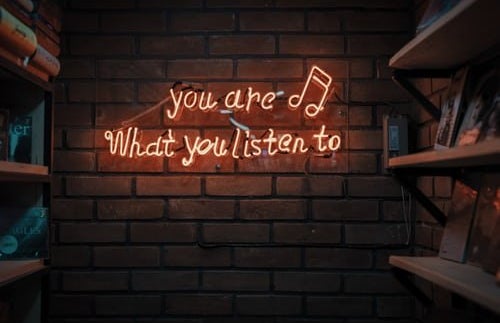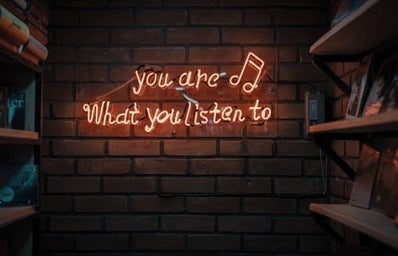Remember being 11, and listening to Katy Perry sing, “I kissed a girl and I liked it” and wondering what was that all about? I certainly do. Having a childhood influenced by Western music and culture, I have grown up listening to beautiful lyrics with significant messages, even if I was too young to understand what most of them meant; long before I could notice similar tunes spring up in Bollywood. Be it Miley Cyrus’s Climb or Lady Gaga’s Born This Way, all of us at one point or another have related to the lyrics and been in awe of the artists before they were recognised as the faces for empowering music in the industry.
These womxn artists are now popular in the public eye for bringing about the discourse on subjects like sexuality, gender and advocating for self-love and a positive body image. In the later half of the past decade, several artists like Janelle Monae and Halsey have taken the music industry by storm, with songs about same-sex relationships and have opened up about their own sexualities, to also being termed as ‘Lesbian Jesus’ in the case of Hayley Kioko, inspiring young womxn across the globe. Promoting messages of normalising variation in sexuality and gender. Meanwhile upcoming artists like Billie Eilish known for her unconventional dressing style as a protest against the ‘male-gaze’, or Lizzo; wildly popular for promoting a positive outlook on body image and self-love, have continued to create absolute bangers that not only young womxn but people of all ages and genders can enjoy and relate to it.
For most people out there, especially the youth, music has always been something personal and meaningful, more so for those who struggle to express their thoughts and emotions. Representation and higher relatability by icons promote a sense of inclusivity, making music genres not only a factor to bond around but also the foundation of several ‘fandoms’ on social media validating an individual’s choice in music.
Representation by Latin artists like Camilla Cabello or Asian ones like Bea Kristi gaining instant popularity shows that people crave diversity; something solidified by the maddening trend of K-pop, providing a platform for girl groups like BLACKPINK to shine. Variation in genres by artists like Nicki Minaj or Cardi B highlights the participation of womxn in an initially male-dominated sphere have success stories like Beyoncé, Shakira, and Jennifer Lopez inspiring womxn and girls to pursue their passion. Be it Taylor Swift’s sassy lyrics after a break-up or Ariana Grande’s catchy tunes to pamper oneself, you can always rely on music to create a safe space for you to vent out your emotions through blasting it on full volume or creating your own music for self-expression. The trend in India’s music industry is catching on, with soundtracks for womxn-centric movies like Chak De India or Secret Superstar displaying musical aspirations of young girls in the country, or with our own artists seeking out genres like rap and hip hop to express themselves or artists of Indian origin in the West like Monica Dogra creating amalgamations of sounds from both cultures; encouraging participation by Indian womxn in music.
As college students, most of us rely on music to regain our sanity or to jam to in parties, or just feel at peace on a long drive. With exposure to so many extraordinary artists, there is a sense of empowerment when we listen to bold lyrics that strike a chord with us. Being someone for whom music is a significant part of her daily routine, I curate my playlist according to my mood at every hour of the day, to which I’m sure most of you can relate to. From having a shower playlist to a ride on the metro , I like my music to be versatile and full of songs from different parts of the world, making it imperative for me to have exceptional womxn artists in my playlist to relate to and to inspire me. In this new age of revolutionary music, I, too, have found my space amidst songs by artists I can relate the most to; making it easier to take every day, one tune at a time.


